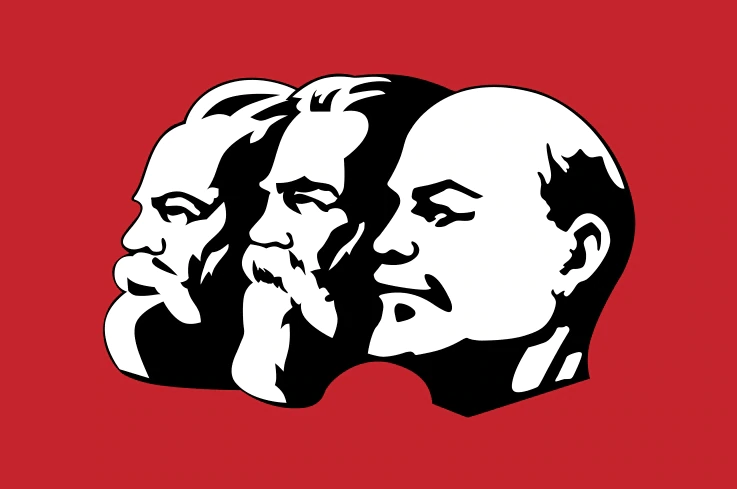
Marxism-Leninism is a scientific world outlook based on the materialist conception of history, the Marxist political economy including Leninist conception of imperialism, the methods, party organization principles and the strategy and tactics of revolution developed by Vladimir Lenin. Marxism–Leninism was also the guiding theory behind national liberation and revolutionary movements in Africa, Asia and Latin America. After the success of the Russian revolution in 1917 and the establishment of the Soviet Union in 1922, many communist parties around the world began to adopt Marxism-Leninism as their political line.
Marxism-Leninism made significant contributions to the critique of the imperialist development of capitalism and developed its own theoretical categories related to the revolutionary praxis and political party organization, such as vanguard party and democratic centralism. Today, Marxism–Leninism is one of the theoretical foundations of currently in govern communist parties in the socialist states of China, Cuba, Laos and Vietnam, it was the adopted scientific world outlook of the USSR, People's Republic of Congo, Workers' Party of Korea, Black Panther Party, Thomas Sankara, Che Guevara, Antonio Gramsci, Palmiro Togliatti and was the main theoretical framework which guided the Korean, Vietnamese, and the Chinese revolutions.
Origin of the term
Lenin never used the term "Leninism", nor did he include his ideas in the term "Marxism-Leninism". His ideas developed out of classical Marxist thought, which was seen by the Bolsheviks as Lenin's contribution to Marxism.